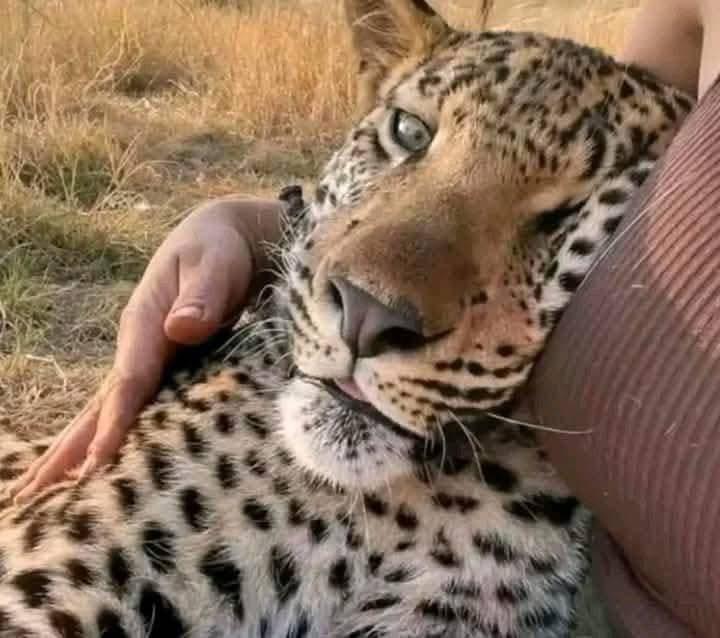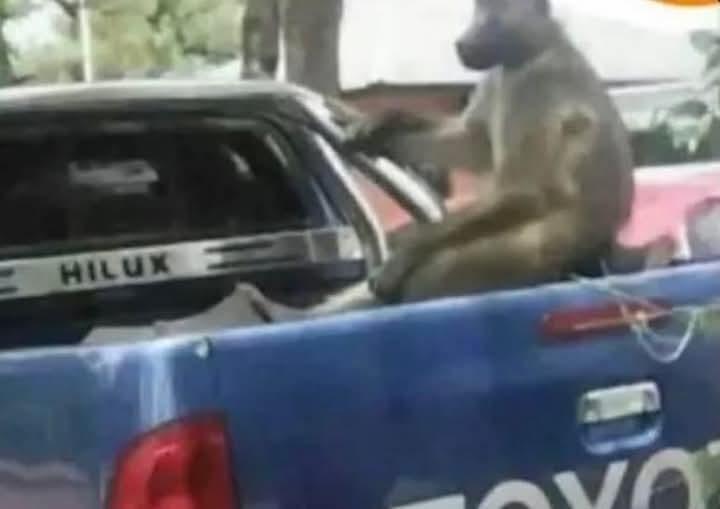Read this with an open mind and have a rethink whenever you sees our security men especially the Army Navy and Air force..
*THE INVISIBLE WOUNDS OF THE NIGERIAN SOLDIERS*
By AH GULANI
The life of an average member of the Armed Forces is filled with confusion, sacrifice, and silent victimization both from within and outside our homes. While we are seen in public as symbols of courage and strength, behind closed doors, we are slowly fading shadows in the lives of those we fight to protect, including our very own families.
Our children grow up believing it is their mother who loves them most , who pays for their school fees, buys their clothes, feeds them, and nurtures them. Why? Because they barely see us. Duty calls us away , first to distant deployments, then to conflict zones. We miss birthdays, graduations, recitals, and religious holidays. To them, we are only a voice on the phone or a pixelated face on a video call.
Yes, salaries are paid. But more than 70% of it goes to our families to ensure their wellbeing. We work ourselves to the bone to give them comfort, yet our physical absence plants a seed of emotional distance. Many of us have missed Sallah and Christmas celebrations not once, but for years because duty had other plans.
By the time we die, our children don’t truly mourn our absence, it is something they have already grown used to. Our portraits on the wall are nothing but a formal reminder of a ghost who was once a father. We didn’t share enough time to leave strong memories. Even our wives may God bless them feel more like widows during our service years. Out of 20 years of marriage, we might spend only 30% of the time with them physically. Our lives are lived through calls and blurry WhatsApp video chats.
Our children sometimes deny us when we go on leave, unsure whether to call us “Daddy” or “Sir.” “Daddy, when are you coming back?” becomes a regular question, and with time, even that curiosity fades.
Our parents and siblings pull at us from one side, demanding our presence, our money, our attention. Yet we must answer to the call of service. Our childhood friends have become distant leaders.Our local communities now seem foreign. We miss weddings, funerals, naming ceremonies, family meetings. We are soldiers always away, always missing.
Even our annual leave is swallowed by part time professional development, or security emergencies. We are sometimes posted to remote regions, where our tribe or religion is a minority. Yet, with integrity and patriotism, we serve diligently.
And yet, it doesn’t end there. We’ve been victims of love denied , women refusing our proposals, not because they don’t love us, but because they fear becoming widows too soon, or being wives to ghosts, only connected by mobile data. We build beautiful homes with luxurious interiors, but we end up sleeping in trenches under the hot sun , onboard a ship on tiny best shaken by deep sea waves or in swampy forests, faces buried in dust, eyes scanning for enemies, hearts burdened by longing.
We have watched our comrades dying, some with bullets to the chest, others in pools of blood, whispering the names of their wives and children. And still, we fight.
We are mocked by some of the citizens we swore to protect. “Na dem dey beat us useless people ,” they say. “Wetindem dey even do?” they mock. We walk into markets and are charged higher instead of being honored. We are ridiculed in the media when one of us makes a mistake, but our gallantry and battlefield victories go unreported. When we fall, headlines read. ‘’Two soldiers killed by unknown gunmen.” No names. No honor. No legacy from the citizens except the armed forces honor.
Even worse, our enemies have become more organized while our sacrifices are not appreciated. We protect the integrity of the nation, ensure others sleep with both eyes closed yet our own families are restless because they never know if we’ll return.
Where do you want a soldier to belong? What do you want us to be?
We are not machines. We are human. We are citizens just like you. We bleed, we cry, we miss our families too. We are not foreigners , we are your brothers, sisters, uncles, daughters, and sons.
So please, Nigerians, if you cannot love the soldier, then at least show compassion. Love us for the sake of our wives who wait endlessly. Love us for the sake of our children who only see us in frames. Love us for the sake of the country we are dying for.
Despite the ridicule and discrimination, we still love you. We can’t stand by and watch you suffer not because we are commanded to protect you, but because it is in our blood to do so.
We only ask for one thing in return, your understanding, and your humanity.
God bless you and remain favour from Almighty God.
Read this with an open mind and have a rethink whenever you sees our security men especially the Army Navy and Air force..
*THE INVISIBLE WOUNDS OF THE NIGERIAN SOLDIERS*
By AH GULANI
The life of an average member of the Armed Forces is filled with confusion, sacrifice, and silent victimization both from within and outside our homes. While we are seen in public as symbols of courage and strength, behind closed doors, we are slowly fading shadows in the lives of those we fight to protect, including our very own families.
Our children grow up believing it is their mother who loves them most , who pays for their school fees, buys their clothes, feeds them, and nurtures them. Why? Because they barely see us. Duty calls us away , first to distant deployments, then to conflict zones. We miss birthdays, graduations, recitals, and religious holidays. To them, we are only a voice on the phone or a pixelated face on a video call.
Yes, salaries are paid. But more than 70% of it goes to our families to ensure their wellbeing. We work ourselves to the bone to give them comfort, yet our physical absence plants a seed of emotional distance. Many of us have missed Sallah and Christmas celebrations not once, but for years because duty had other plans.
By the time we die, our children don’t truly mourn our absence, it is something they have already grown used to. Our portraits on the wall are nothing but a formal reminder of a ghost who was once a father. We didn’t share enough time to leave strong memories. Even our wives may God bless them feel more like widows during our service years. Out of 20 years of marriage, we might spend only 30% of the time with them physically. Our lives are lived through calls and blurry WhatsApp video chats.
Our children sometimes deny us when we go on leave, unsure whether to call us “Daddy” or “Sir.” “Daddy, when are you coming back?” becomes a regular question, and with time, even that curiosity fades.
Our parents and siblings pull at us from one side, demanding our presence, our money, our attention. Yet we must answer to the call of service. Our childhood friends have become distant leaders.Our local communities now seem foreign. We miss weddings, funerals, naming ceremonies, family meetings. We are soldiers always away, always missing.
Even our annual leave is swallowed by part time professional development, or security emergencies. We are sometimes posted to remote regions, where our tribe or religion is a minority. Yet, with integrity and patriotism, we serve diligently.
And yet, it doesn’t end there. We’ve been victims of love denied , women refusing our proposals, not because they don’t love us, but because they fear becoming widows too soon, or being wives to ghosts, only connected by mobile data. We build beautiful homes with luxurious interiors, but we end up sleeping in trenches under the hot sun , onboard a ship on tiny best shaken by deep sea waves or in swampy forests, faces buried in dust, eyes scanning for enemies, hearts burdened by longing.
We have watched our comrades dying, some with bullets to the chest, others in pools of blood, whispering the names of their wives and children. And still, we fight.
We are mocked by some of the citizens we swore to protect. “Na dem dey beat us useless people ,” they say. “Wetindem dey even do?” they mock. We walk into markets and are charged higher instead of being honored. We are ridiculed in the media when one of us makes a mistake, but our gallantry and battlefield victories go unreported. When we fall, headlines read. ‘’Two soldiers killed by unknown gunmen.” No names. No honor. No legacy from the citizens except the armed forces honor.
Even worse, our enemies have become more organized while our sacrifices are not appreciated. We protect the integrity of the nation, ensure others sleep with both eyes closed yet our own families are restless because they never know if we’ll return.
Where do you want a soldier to belong? What do you want us to be?
We are not machines. We are human. We are citizens just like you. We bleed, we cry, we miss our families too. We are not foreigners , we are your brothers, sisters, uncles, daughters, and sons.
So please, Nigerians, if you cannot love the soldier, then at least show compassion. Love us for the sake of our wives who wait endlessly. Love us for the sake of our children who only see us in frames. Love us for the sake of the country we are dying for.
Despite the ridicule and discrimination, we still love you. We can’t stand by and watch you suffer not because we are commanded to protect you, but because it is in our blood to do so.
We only ask for one thing in return, your understanding, and your humanity.
God bless you and remain favour from Almighty God.











